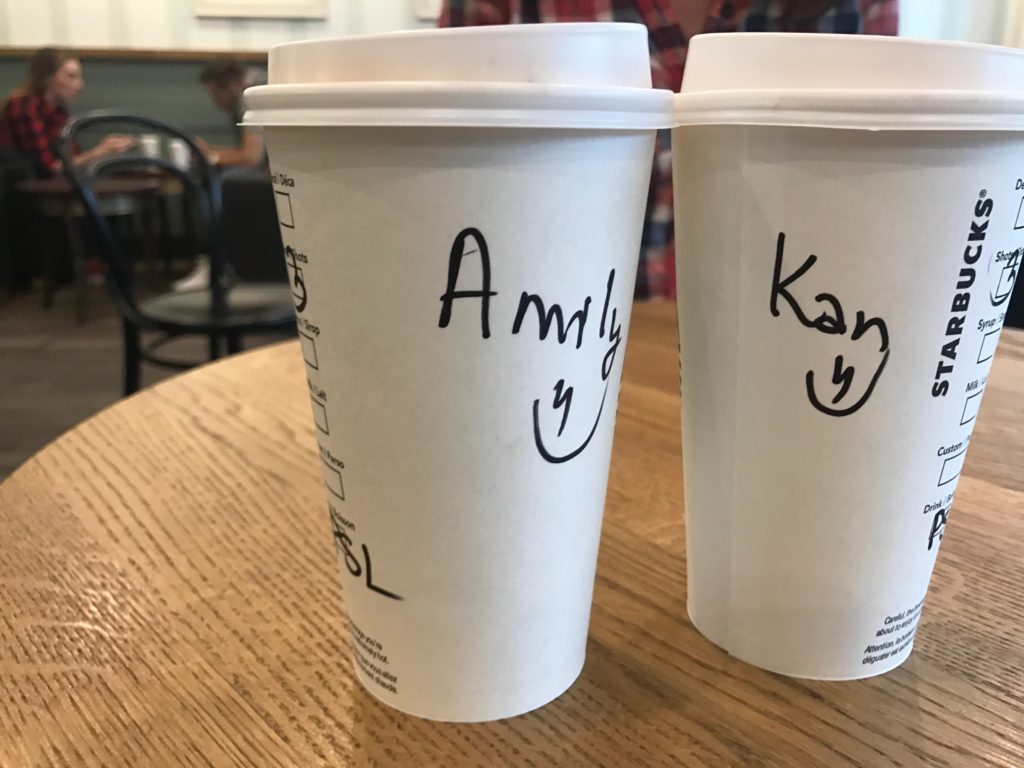I walk into a coffee shop in Prague and the barista is chatting in Czech with the customer in front of me about what I assume involves whether she wants her muffin for here or to go. When they’re finished, I smile and say, “Hello.” I do this intentionally, not only because it’s polite, but because I need to announce that I speak English.
The barista responds with, “Good morning, what would like today?”
She takes my order in English, and I fiddle with my Korunas trying to read the denominations on all my coins. I tell her my name, Emily, which she spells with an “A” because that’s the more common European spelling, and I head to the end of the bar. When my drink is done the barista calls my name and I respond with a butchered attempt to say “děkuji,” the Czech word for “thank you.” The barista smiles and I’m not sure if it’s because she appreciates the effort or because she has no idea what sound I just made and is being polite.
And that’s how it goes when you don’t speak a word of the local language.

This is the first time in a really long time that either of us have experienced this. In South America, we weren’t fluent in Spanish, but we have been around Spanish a lot in the United States so we knew things things like numbers, greetings and basic responses. We also were somewhat familiar with the letters and the sounds and could generally read a Spanish word off a menu or easily say “hasta luego” when we left a place.
Then we went to Germany. Kenny and I each have six years of German class under our belt, and while we’re nowhere near fluent, we can read signs, respond to most questions and engage at a practical level. But when we walked into the Czech Republic, not only did we not know a word of Czech, but we couldn’t even pronounce the words we looked up. I just can’t make the sounds required to say words in Czech.
I immediately missed the struggle of constantly trying to translate my answers into another language. It was strange to just speak English in a foreign country, because I was used to at least trying to communicate in the local language.
I didn’t like the feeling of walking into another country and not knowing a word of the language. It’s not because I feel uncomfortable or lost, because I don’t mind those things, it’s because I feel guilty and disrespectful. I don’t like walking into someone else’s country and immediately speaking my own language and expecting them to understand me.
But they do; they do understand me. In most cases, at least in Europe, everyone speaks English, too. Even in South America, people would apologize to us for not speaking English, which is absurd. They took the time to learn English and I hate that can’t even say thank you in their language.
I have so much admiration and jealousy for the fact that many Europeans know at least two languages, and often times many more. The EU is so different from the United States when it comes to engaging with people from other countries. It’s easier, cheaper, and faster for Europeans to travel to a country that speaks a different language so interacting with multiple languages is much more common. Menus, advertisements and train announcements are regularly in multiple languages in Europe, where in the US everything is all English, all the time.
However, I have realized just how valuable it is to speak English. I appreciate how fortunate I am to speak English and that English is somewhat of an equalizer around the world. Kenny made this point in Prague and I think he was spot on. To us, speaking English in the Czech Republic feels disrespectful because we’re thinking of English as “our” language and Czech as “their” language. But then think about the Hungarians who are visiting Prague, or the Czechs who are visiting Spain. They don’t speak the local language either, but because they speak English, they are now able to visit countries all over Europe because English is always the secondary language. In so many cases, English is a shared language that acts as a bridge across a continent and world that speaks a wide range of languages.
So what can you do? What should you do?
First, you don’t let language barriers stop you from traveling anywhere. It will be uncomfortable sometimes, but at the end of the day, you’ll give someone money and they will give you something in exchange and you’ll get by. Second, you make an effort. Try to learn at least one world in the local language, like please or thank you, and say it even if you botch it. And third, you smile a lot, which is universally polite (I think.).
